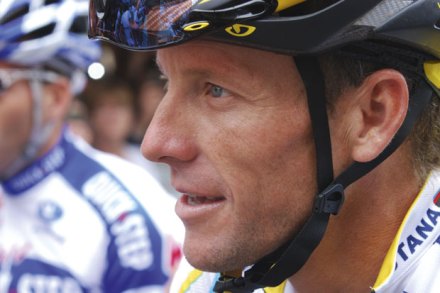Can Lance Armstrong squirm? We don’t know because The Armstrong Lie doesn’t make him
Alex Gibney’s The Armstrong Lies is fascinating as far as it goes but it may not go as far as you would like, and may not ask the questions you would like. It’s a documentary portrait of the American cyclist Lance Armstrong: seven-time winner of the Tour de France, worldwide symbol of physical courage (having survived testicular cancer in his twenties), founder of the Livestrong Foundation, which has raised millions for cancer sufferers, and something else. It’ll come to me in a minute. Talk among yourselves. Oh, yes. Cheat. Also, liar. He lived a cheating lie, all day, every day, throughout his sporting career. He lived a cheating lie even



















